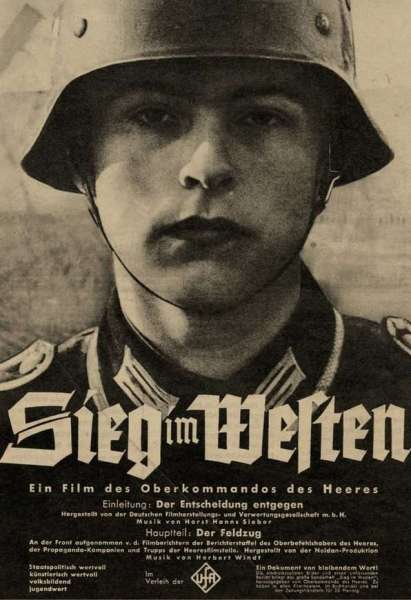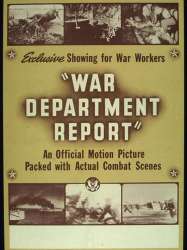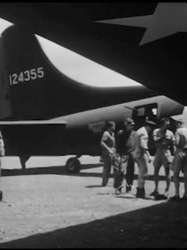Victory in the West is a film of genre Documentary
Victory in the West (1941)

If you like this film, let us know!
Length 1h54
Genres Documentary
Themes Documentary films about war, Documentary films about historical events, Political films, Documentary films about World War II
Rating70%










Sieg im Westen (Victory in the West) is a 1941 Nazi propaganda film.
It was produced by the Oberkommando des Heeres, the German Army High Command, rather than the Propaganda Ministry of Joseph Goebbels. Goebbels indeed sabotaged its release in minor ways, delaying its premiere and telling propagandists not to promote it.
The prologue consists of the Nazi version of European history and the origins of World War II, and the rest deals with the Battle of France, a Blitzkrieg in the Low Countries and France (10 May – 22 June 1940). The movie was made largely from newsreel footage recut into a documentary. The programme provided states that it is to show the audacity of the German offensive and the superiority of German arms, required because they will not be permitted to live in peace. It did not give Hitler or the Nazi party a central role, thus ensuring its disfavor with Goebbels.
The Nazi journal "Der deutsche Film" called Sieg im Westen "the greatest of all German newsreels." Unlike many other German propaganda films, Sieg im Westen does not belittle the enemy, instead admitting that the French soldiers fought gallantly.
The war is presented "from above"; the battles are depicted as smooth forward advances on the map, with results from reports at the front. The "encirclement" of Germany is depicted by showing prisoners of war from far-off countries.
Comments
Leave comment :
Suggestions of similar film to Victory in the West
There are 8965 with the same cinematographic genres, 8197 films with the same themes (including 442 films with the same 4 themes than Victory in the West), to have finally 70 suggestions of similar films.If you liked Victory in the West, you will probably like those similar films :
 , 47minutes
, 47minutesOrigin USA
Genres War, Documentary
Themes Documentary films about war, Documentary films about historical events, Political films, Documentary films about World War II
Rating64%






The 957th Day (1944)
, 10minutesOrigin USA
Genres War, Documentary
Themes Documentary films about war, Documentary films about historical events, Political films, Documentary films about World War II

Wings Up (1943)
, 20minutesGenres War, Documentary
Themes Transport films, Aviation films, Documentary films about war, Documentary films about historical events, Documentary films about technology, Political films, Documentary films about World War II, United States Armed Forces in films
Actors Clark Gable, Gilbert Roland, William Holden, Robert Preston, Brenda Marshall
Rating66%






Wartime Nutrition (1943)
, 10minutesOrigin USA
Genres Documentary
Themes Documentary films about war, Documentary films about historical events, Political films, Documentary films about World War II

War Department Report (1943)
, 47minutesOrigin USA
Genres Documentary
Themes Documentary films about war, Documentary films about historical events, Political films, Documentary films about World War II
Actors Walter Huston
Rating68%






Tomorrow We Fly (1943)
Origin USA
Genres Documentary
Themes Transport films, Aviation films, Documentary films about war, Documentary films about historical events, Documentary films about technology, Political films, Documentary films about World War II
 , 21minutes
, 21minutesDirected by Arthur Lubin
Origin USA
Genres Documentary
Themes Medical-themed films, Films about drugs, Transport films, Aviation films, Documentary films about law, Documentary films about war, Documentary films about historical events, Documentary films about health care, Political films, Documentary films about World War II
Actors Noah Beery, Jr, Jean Hersholt, Joseph Crehan, Richard Fraser, Thomas Gomez, Anne Gwynne
Rating56%






Swedes in America (1943)
Directed by Irving Lerner
Origin USA
Genres Documentary
Themes Films about immigration, Documentary films about war, Documentary films about historical events, Political films, Documentary films about World War II
Actors Ingrid Bergman
Rating59%






Suggestion Box (1943)
, 9minutesOrigin USA
Genres Documentary
Themes Documentary films about war, Documentary films about historical events, Political films, Documentary films about World War II
 Connection
Connection
